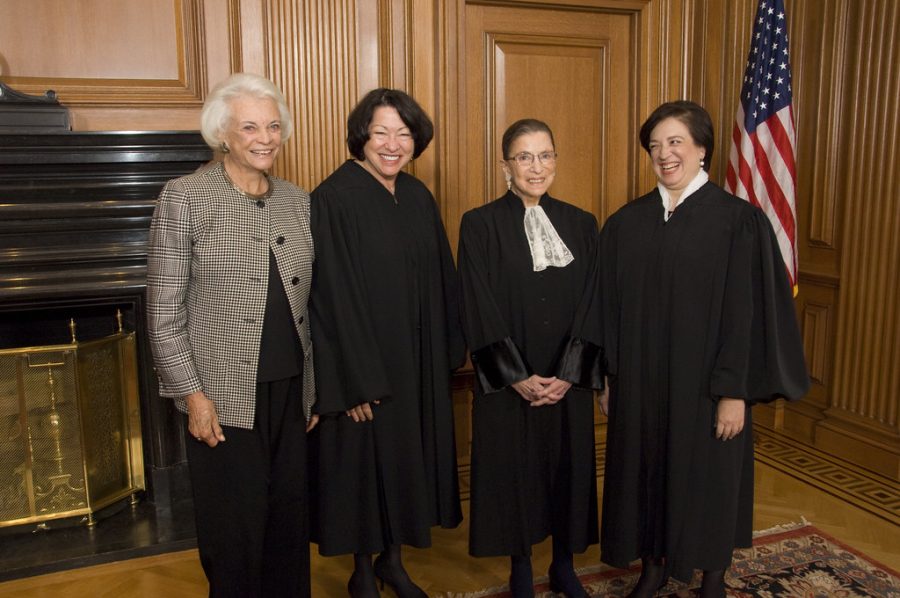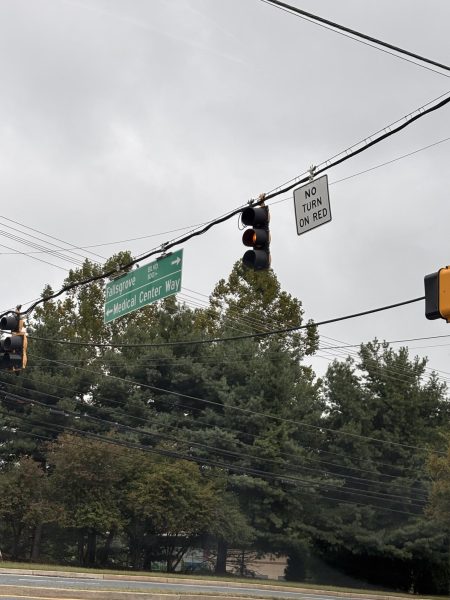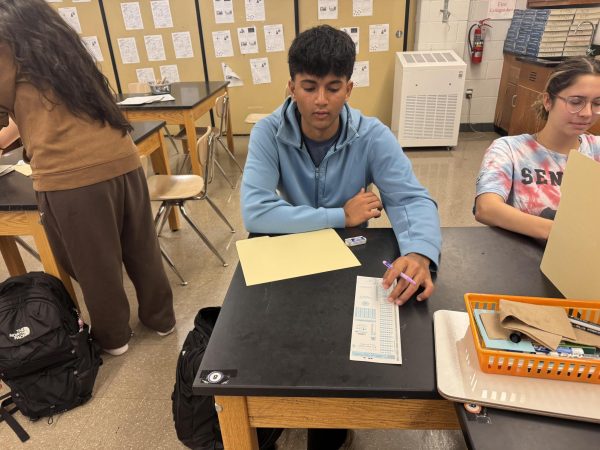Women’s History Month sprouts into action
Photo used with permission from Google Commons
Women’s History Month is a time to celebrate awe-inspiring female leaders, such as the pioneering female Supreme Court Justices, Sandra Day O’Connor, Sonia Sotomayor, Ruth Bader Ginsburg and Elena Kagan.
March marks the beginning of spring, a time of change budding in the weather patterns and our sleep schedules. It is also a blossoming time of celebration, hope and respect to the women who encompass a great contribution in society.
How did Women’s History Month come to fruition in the first place? At an International Conference of Working Women in Copenhagen on Mar. 8, 1910, according to Andrea Wurzburger for People, German activist Clara Zetkin suggested that over a dozen countries should recognize International Women’s Day. This was established to commemorate the Feb. 28 meeting of socialist and suffrage women in Manhattan in 1909.
While this was widely celebrated in Europe, it wasn’t until the United Nations sponsored it in 1975 that the U.S. recognized it. In California in 1977, school principals did not comply with Title IX, so a state task force created “Women’s History Week” to honor women’s accomplishments. By March of 1980, President Jimmy Carter declared Mar. 8 to be the start of “National Women’s History Week.” The same year, a joint resolution was approved by Congress to declare this.
It wasn’t until 1987 that Women’s History Month became finalized by Congress. Every president since then has dedicated the month of March to this event.
According to Sandra Bookman for ABC 7 News, the year 2020 was supposed to hold centennial celebrations of women’s suffrage. Because of the Coronavirus pandemic, 2021 holds “extra significance,” Bookman said.
Junior Aidan Caesar said the female figures he looks up to are ABC Grey’s Anatomy star Ellen Pompeo and the late Supreme Court Justice Ruth Bader Ginsburg. “I love what they represent and the way they fight for their beliefs,” Caesar said.
Although there are a plethora of female-led accomplishments and changemakers to honor this month, there are still roadblocks women face everyday that must be combated in the nation. This includes unequal pay rates and a lack of women in positions of power.
There are a variety of ways anyone, including non-female identifying people, can commemorate the accomplishments of women and work to advocate for gender equality. This can happen through reading female-written books or educating on the intersectionalities of feminism. Within the Wootton community, there are women’s empowerment or advocacy clubs students can join, such as Girls Who Start.
Junior Ella Cooper is a member of Girls Who Start at school. “To me, Women’s History Month is a time in which women’s accomplishments over the years are especially recognized for all of their great work throughout history, culture and more,” Cooper said.
Your donation will support the student journalists of Thomas S. Wootton High School. Your contribution will allow us to purchase equipment and cover our annual website hosting costs.
Maya Seiler is a 2022 graduate. In her free time, she enjoys spending time with friends and baking. You can follow Maya's Instagram @maya.seiler.







